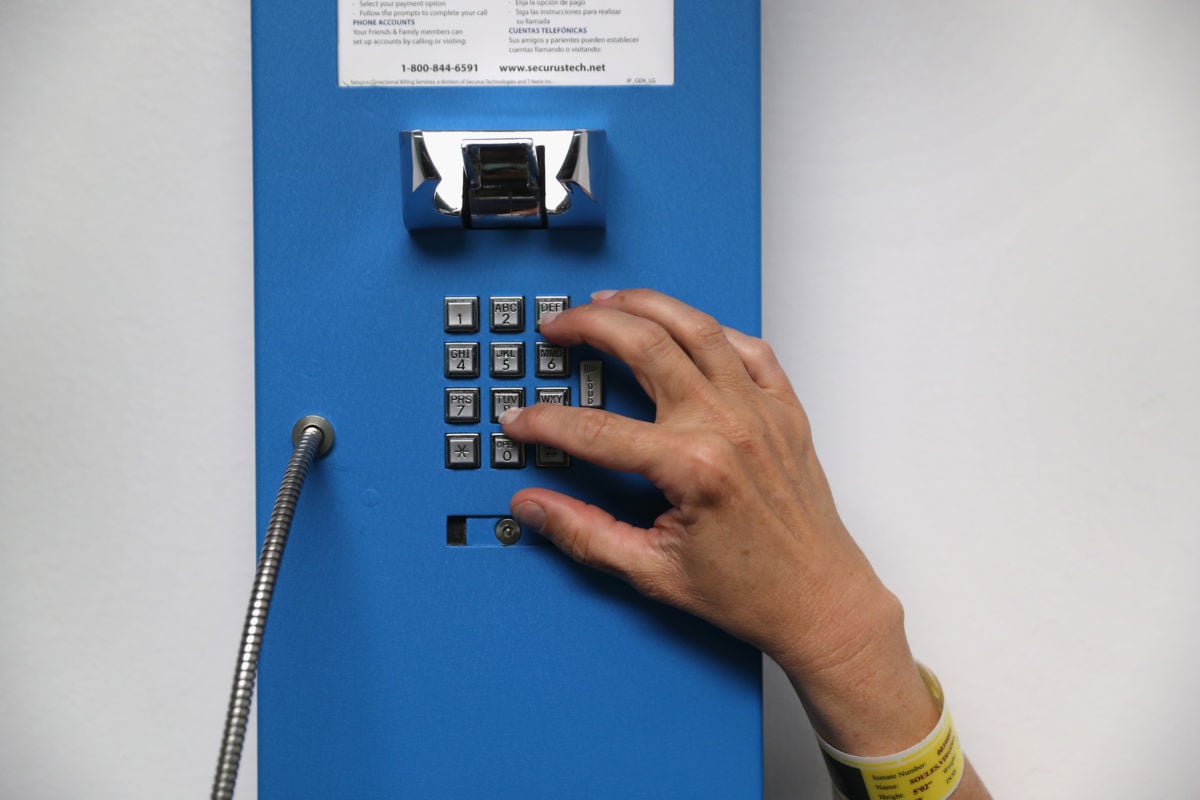Imagine having to choose between purchasing groceries or making a phone call to speak with your incarcerated loved one this week. That’s the dilemma facing thousands of families across the country bearing the burden of high-cost prison phone calls.
In states like Arkansas, according to the Prison Policy Initiative, it can still cost up to $24 for a 15-minute phone call with someone detained at a jail — a plight poignantly dramatized in Ava DuVernay’s new series about the Central Park jogger case, “When They See Us.” In the series, DuVernay shows us how varied levels of contact and access impacted the now-exonerated men at the heart of the case differently over the course of their years of imprisonment.
This continued injustice is why, for more than 20 years, my grandmother, Martha Wright-Reed, fought the prison phone industry for affordable phone rates. Now, I am working to keep up the fight.
My own incarceration was the initial motivation for my grandmother’s struggle for phone justice. However, over time, we realized this fight was much bigger than us; it was about keeping families together across the United States. We also knew that lowering the price of long-distance calls was only one aspect of this ongoing battle.
My grandmother’s perseverance and commitment finally bore fruit in 2013 when the Federal Communications Commission (FCC) announced they would cap long-distance prison phone rates. I couldn’t have been more proud of my grandmother, who, in her final years, achieved such tremendous change.
This past week, Sen. Tammy Duckworth introduced the Martha Wright-Reed Just and Reasonable Communications Act to continue my grandmother’s legacy by pushing for fairer prison phone rates across the country. This legislation would restore the FCC’s authority to regulate the prison phone industry and cap the rate of prison phone calls from state and local prisons.
We need to be clear about how prisons disappear our loved ones and break apart families, especially Black and Brown families. This isolation from the very communities that provide love and support to incarcerated individuals does not facilitate rehabilitation; it only creates further pain. In episode four of “When They See Us,” one of the wrongly convicted men, Korey Wise, conveys his desperation for contact with his mother by literally reaching over the physical barrier between them, begging her to visit him more often as the guards drag him away.
While I was incarcerated, I too, witnessed firsthand how many people suffered great emotional and mental distress from the isolation that incarceration creates. I was incarcerated at a time in the 1990s not long after the Central Park jogger case in New York, when the prison population was exploding nationwide, so I am deeply moved by today’s growing conversation around criminal legal reform.
Seeing others suffer from this kind of disconnection made me even more grateful for my phone calls with my grandmother, which were so unaffordable she often had to choose between speaking with me or purchasing the medication she needed to stay alive. These are the tough decisions families like mine must make every day when the prison phone industry goes unregulated.
When I learned that my grandmother was fighting the high cost of these calls, I was skeptical that we could ever win. Despite her being a fearless and resilient fighter, I knew these prison phone companies were literally profiting off the misfortune of others and had repeatedly proved to be morally bankrupt. So, when we won in 2013, it reminded me that our agency as directly impacted people is never easily diminished.
My grandmother died in 2015, and I am proud to see her legacy continue to empower other families fighting for their right to communicate with their incarcerated loved ones today.
The fight for prison phone justice is critical to the larger prison reform movement because our ability to communicate with our loved ones is essential to our success when we come home after incarceration, something which I hope people take away from DuVernay’s series.
The support I had from my family throughout my incarceration made such a difference — not only was I able to return to my community with my closest relationships intact, but it inspired me to get involved and to make a positive difference for other families that were experiencing what we had gone through.
Supporting the Martha Wright-Reed Just and Reasonable Communications Act means speaking up for those who haven’t typically been seen or heard in Washington, D.C., but who deserve and need communication rights as much as anyone else.
That’s a vision my grandmother spent more than two decades fighting for, a vision that helped me through some of the most difficult moments of my life, and a vision that I am committed to carrying forward alongside so many others that our system has tried to make disappear.
Our most important fundraising appeal of the year
December is the most critical time of year for Truthout, because our nonprofit news is funded almost entirely by individual donations from readers like you. So before you navigate away, we ask that you take just a second to support Truthout with a tax-deductible donation.
This year is a little different. We are up against a far-reaching, wide-scale attack on press freedom coming from the Trump administration. 2025 was a year of frightening censorship, news industry corporate consolidation, and worsening financial conditions for progressive nonprofits across the board.
We can only resist Trump’s agenda by cultivating a strong base of support. The right-wing mediasphere is funded comfortably by billionaire owners and venture capitalist philanthropists. At Truthout, we have you.
We’ve set an ambitious target for our year-end campaign — a goal of $250,000 to keep up our fight against authoritarianism in 2026. Please take a meaningful action in this fight: make a one-time or monthly donation to Truthout before December 31. If you have the means, please dig deep.
